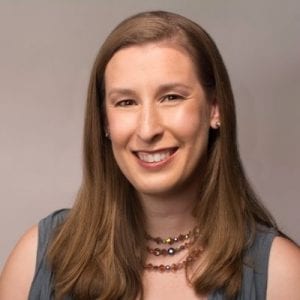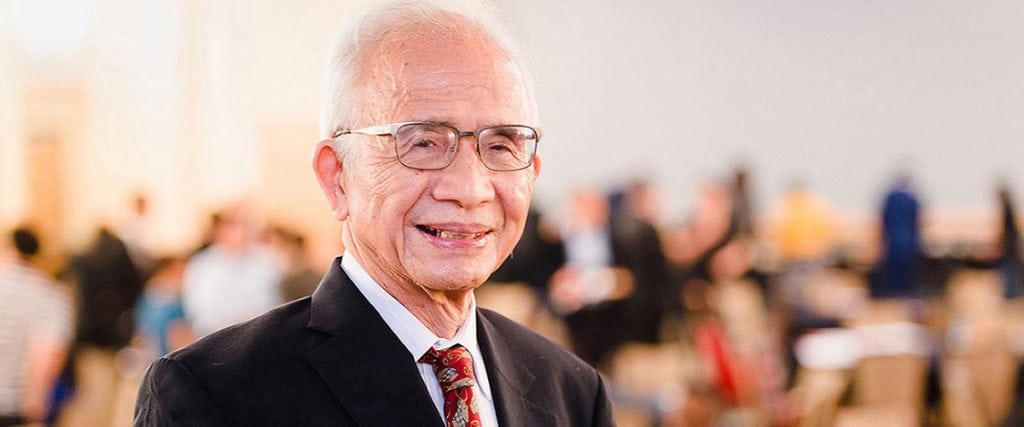Entrepreneurship Funding According to Harvard Business School

There’s no doubt that entrepreneurs are innovative and have a ton of grit. Unfortunately, according to Harvard Business School Assistant Professor Andy Wu, that determination and creativity doesn’t always translate into funding. Often, entrepreneurs are short-sighted when it comes to where to find funding. And while there are discussions and classes all about starting a business, there are few learning opportunities dedicated to entrepreneurship funding—financial and non-financial—to bring the idea to life.
To examine how the entrepreneurial community looks at funding, Wu along with his colleagues David R. Clough, Tommy Pan Fang, and Balagopal Vissa published a paper titled, “Turning Lead Into Gold: How Do Entrepreneurs Mobilize Resources to Exploit Opportunities?”
What they found is that too much focus is placed on raising money and signing contracts, and not enough emphasis is placed on informal and non-financial resources. And the reality is that these resources can make or break a business.
“Entrepreneurs are more successful when they can leverage non-market, non-pecuniary resources,” Wu says. “We think that is totally the wrong mindset …The challenge to raising financial capital is often related to a lack of those other resources.”
In particular, there are three areas of non-financial funding where entrepreneurs tend to come up short:
- Searching for resources outside of immediate connections
- Non-market resources
- Transferring resources through informal transactions.
1. Resources Outside of Immediate Connections
When looking for resources, it’s fine to start with the people you know, but you can’t stop there. Your network is too narrow. Instead, you need an outward-looking mindset where you search for investors and partners outside of your immediate network.
2. Non-Market Resources
The people who will help you succeed are about more than financial capital. Your network should be leveraged for advice, mentorship, in-kind donations, and more. And the good news is that financial and non-financial resources are not mutually exclusive. Non-financial motivations can encourage investment.
3. Transferring Resources Through Informal Transactions
Not everything needs to be handled with formal contracts. Less formal arrangements for transferring knowledge that rely on trust and mutual understanding are also valuable. For example, mentors don’t need a formal agreement, but should not be discounted.
Read the full article on HBS Working Knowledge.
This article has been edited and republished with permissions from its original source, Clear Admit.
How Woman Can Close the Pay Raise Negotiation Gap, and More – Chicago News

Let’s explore some of the most interesting stories that have emerged from Chicago business schools this week.
Are You Willing to Stretch the Truth While Negotiating? – Kellogg Insight
Research trends have found that men are more willing to lower personal ethical standards during negotiations than women when it comes to pay raise negotiation.
However, a new study from Northwestern University Kellogg School of Management‘s Maryam Kouchaki, Assistant Professor of Management and Organizations, finds that there’s a situation that throws a wrench in the works: “when women negotiate on behalf of others.”
Kouchaki and her UC Berkeley co-author Laura Kray write:
“A woman who is negotiating on behalf of someone else will lie at roughly the same rate as her male counterpart. But, if she is negotiating on her own behalf, she is much less likely to deceive. Women in advocacy roles [get] as much done as men.”
You can read more about Kouchaki’s pay raise negotiation research here.
Will EU Migrants Pay Their Fair Share of Taxes? – Chicago Booth News
The Chicago Booth Initiative on Global Markets surveyed its European Economic Experts Panel, which is comprised of “50 economists and top researchers,” about whether recent European migrants are likely to “contribute more in taxes paid than they receive in benefits and public services.”
LSE’s Daniel Sturm writes, “Being younger and typically better educated, their [the migrants’] fiscal contribution tends to be positive as suggested by recent research for the U.K.”
Goethe University Frankfurt’s Jan Pieter Krahnen agrees:
“As [the] employment rate among migrants goes up over time, and much of taxation is indirect anyway, chances are that the statement comes true.”
Director of the European IGM Panel Christian Leuz is less optimistic. “[It is] too early to tell. Labor market outcomes are often worse for [a] long time. Demographics are [a] plus. Much depends on fast integration into [the] labor market.”
You can read more from the panel’s discussion here.
Faculty and Students Team Up with Northern Illinois Food Bank – Quinlan School of Business News
Loyola University Quinlan School of Business’ Urban Social Benefit Incubator teamed up with the Northern Illinois Food Bank to develop a “new system for serving its families” to replace the precarious first-come, first-served process it currently employs.
Quinlan is proposing “an online ordering system that allows for pick-up at strategic locations in the community, such as a grocery store.”
Harry Haney, Associate Director of Quinlan’s Supply and Value Chain Center, who is helping spearhead the initiative, writes:
“It’s important to us to serve nonprofits and social enterprises to help make a difference in the community. Plus, our students are learning the real-world side of business and gaining additional educational exposure.”
You can read more about Loyola’s food bank initiative here.
The Twitter Echo Chamber (Sort Of), and More – Boston News

Let’s explore some of the most interesting stories that have emerged from Boston business schools this week.
Here’s Why Twitter Isn’t the Echo Chamber You Think It Is – Questrom School of Business News
In new research recently published in MIS Quarterly, Northeastern Questrom’s Jesse Shore and Chrysanthos Dellarocas with Hong Kong University of Science and Technology’s Jiye Baek (Questrom, Ph.D. ’18) found that Twitter users tend to “post more moderate content” than the content to which they are exposed.
Shore explains that this finding stands in stark contrast to the theory that the platform “opens us up to a greater diversity of perspectives, nudges us to ever-more extreme positions,” and creates an echo chamber for opinions.
“I hope this study helps move the public conversation beyond the notion of echo chambers. In many ways Twitter users are the opposite of the way they are described in the press: they are exposed to diverse information, but post more moderately,” Shore says.
You can read more about the research here.
How ‘Credibility-Enhancing Displays’ Can Boost Sales and Drive People to Action – MIT Sloan Ideas Made to Matter
MIT Sloan Associate Professor of Management Science and Brain and Cognitive Sciences David Rand and Yale doctoral candidate Gordon Kraft-Todd pursued new research that suggests that businesses will inspire potential customers to engage their services if they “walk the walk” since “beliefs are spread more effectively by actions than by words because actions reveal information about the actor’s true beliefs.”
Kraft-Todd explains:
“This is true of solar panels, but it’s true of any campaign where the common denominator is some new or rare behavior. If practitioners organize a campaign around a novel technology or practice, then the first thing they should do is get spokespeople and advocates who themselves are adopters.”
You can read more from the full article here.
Dysfunctional Teams – Harvard Business Review
Harvard Business School Professor Amy Edmondson was a guest on a recent episode of HBR’s advice podcast “Dear HBR,” where she and co-hosts Alison Beard and Dan McGinn unpack listener questions about “what to do when your team isn’t communicating, doesn’t respect its leader, or has one employee who’s causing problems.”
When Professor Edmondson was studying medical errors as research for her new book The Fearless Organization: Creating Psychological Safety in the Workplace for Learning, Innovation, and Growth, she discovered that the better teams were “more able and willing to talk about the mistakes that occurred so that they could catch and prevent them from causing harm. People have to feel safe to bring their brains to work. And [that feeling of security] is not normal. Fear is really quite widespread.”
In the episode, Edmondson fields questions that touch on office dynamics between junior employees and senior management, sudden shifts in decision-making processes, as well as the surprising drawbacks of more transparent cultures.
You can listen to the entire HBR episode and read more about Professor Edmondson’s research here.
Gies Caterpillar Partnership Announced, and More – Chicago News

Let’s explore some of the most interesting stories that have emerged from Chicago business schools this week.
Government Got You Worried? It May Be Affecting Your Shopping Habits – Kellogg Insights
Northwestern Kellogg School of Management doctoral candidate Jessica Gamlin, along with professors of marketing Ping Dong and Aparna Labroo, found that “when consumers are thinking about politics, they are drawn to products they view as utilitarian rather than pleasurable.” In other words: “the more you fret about the state of the government, the more spartan your shopping cart might be.”
Speaking with Kellogg Insights, Gamlin explains her fascination with the dissonance between a seemingly banal meal-kit ad placed amidst a divisive political debate, “I was curious about why advertisers were choosing these different podcasts to advertise on in different quantities.”
Labroo also adds, “A desire for the government to do things in a more responsible manner translates into higher-order goals for the consumer, herself, to be responsible in her actions.”
Dong adds, “The reason is the more people think the political system is irresponsible, the more the desire to see the government be responsible is activated, and therefore, the more the consumer’s own goal is also activated.”
You can read more about the research here.
Caterpillar Invests in Students’ Futures with Illinois Business-Engineering Program – Gies College of Business News
As part of a decades-long relationship between the University of Illinois and the Peoria-based construction equipment manufacturer, Caterpillar has recently invested in the Gies College of Business and the College of Engineering’s new collaborative Hoeft Technology & Management undergraduate minor, in which “teams of business and engineering students learn and work together to develop comprehensive solutions to real-world problems.”
In the announcement, Caterpillar CTO and VP Tom Bluth says, “Becoming an affiliate of the program is a natural fit for us, because the intersection of business and engineering is at the core of how we develop the products and solutions that benefit our customers.
“We’re also proud to have been connected to the T&M Program since its start: A member of our Caterpillar family had the vision to create the program and the passion to make it possible.”
You can find out more about the Gies Caterpillar partnership here.
Six Marketing Fundamentals Founders Need to Succeed – Chicago Booth Magazine

Catherine Littell ’08
Chicago Booth Magazine recently profiled Catherine Littell (’08), whose Care Concierge LLC has taken an innovative approach to senior-care consulting. Littell, an Entrepreneur-in-Residence at the James M. Kilts Center for Marketing, discussed her “multipoint approach to launching a business in the digital age.”
- Know your customer. “There are a lot of great ideas out there. But can you take that idea and create a product for the right customer at the right time?”
- Hone your message. “It’s really about understanding your customer and creating an authentic experience.”
- Let the data speak. “Data will tell you whatever you want it to, good or bad, so make sure you use it to inform rather than just to affirm your decisions.”
- Run the numbers. “Starting a business is about gut feelings, but knowing the numbers can help you figure out whether or not a business is profitable or can be profitable.”
- Be comfortable with change. “You’ve got to be able to trust your gut and say, ‘If it works, great, and if it doesn’t, let’s change tactics and move forward.’”
- Hire the right team. “If you find people who have drive and passion, plus they love your product and can define what you do and stand for, that’s really powerful.”
You can read the full article here.
Better Advice, Getting Kids To Stop Drinking Soda, and More – Chicago

Let’s explore some of the most interesting stories that have emerged from Chicago business schools this week.
A New Way to Persuade Kids to Drink More Water and Less Soda – Kellogg Insight
Northwestern University’s Kellogg School of Business recently published an article that surveyed a number of strategies that Associate Professor of Marketing Michal Maimaran and his colleagues pursued in collaboration with UNICEF to encourage children to drink more water and less soda.
Maimaran, Stanford’s Szu-chi Huang, BU Questrom’s Daniella Kupor, and the University of Amsterdam’s Andrea Weihrauch attempted to link “water consumption with different goals that kids might want to achieve” by designing four “Drink Water” posters, each with a distinct message: “Be Healthy,” “Learn Faster,” “Make Friends,” and no message.
According to the research, the only poster that spurred bottled-water sales was “Be Healthy,” which Maimaran believes is likely due to the fact that “kids are persuaded by messages that rely on a natural association between the action and goal, such as between being healthy and water.”
You can read more about the research here.
Capitalizing On Sleep-Wake Cycle Can Drastically Increase Digital Ad Profits From Social Media – Mendoza Ideas & News
Recent research from the Notre Dame University Mendoza College of Business shows that “digital content platforms can increase traffic to their websites from social media and boost digital ad profits simply by aligning their posting schedules with target audiences’ sleep-wake cycles, or circadian rhythms.”
Vamsi Kanuri, Assistant Professor of Marketing at Mendoza explains in his new research that, “Consumers engage more with posts containing high-arousal negative information, including anger, stress, anxiety or fear, in the morning than in the afternoon or evening. They engage more with ‘boosted’ (paid to advertise) posts and those requiring higher cognitive processing, such as op-eds or scientific material, in the afternoon.”
“Scheduling Content on Social Media: Theory, Evidence and Application” is due for publication in the Journal of Marketing soon. You can also find more on the research from Mendoza Ideas & News here.
Why is it Better to Give Advice Than Receive It? – Chicago Booth News

Chicago Booth Professor Ayelet Fishbach
A new study from and Penn’s Lauren Eskries-Winkler and Christopher H. Browne Distinguished Professor of Psychology and famed writer Angela Duckworth found that people tend to “benefit more from giving advice than receiving it.”
According to the study, which was recently discussed in the Chicago Booth News, “the very act of giving the advice makes the giver feel powerful and confident. When people lack motivation, receiving advice may actually be harmful … because it undermines feelings of competence.”
The authors note, “In the process of giving advice, advisers may form specific intentions and lay out concrete plans of action—both of which increase motivation and achievement.”
“We hope our findings, which illuminate the motivational power of giving, do just that: goad scientists and practitioners to consider the ways in which struggling individuals benefit from giving.”
“In Giving We Receive: A Counterintuitive Approach to Motivating Behavior” is due for publication in Psychological Science.
You can read the full article from the Chicago Booth News here.
3D Printing Research, Success Without Passion, and More – New York News

Let’s explore some of the most interesting stories that have emerged from New York business schools this week.
Award-Winning Paper Explores How Designers Innovate in 3D Printing Communities – Stevens Institute of Technology SOB News
In a new paper from Gaurav Sabnis, Stevens Institute of Technology School of Business Assistant Professor of Marketing, Associate Dean of Research Dr. Jeffrey Nickerson, and the University of Navarra’s Dr. Harris Kyriakou “examines knowledge reuse in 3D printing communities [where] makers often iterate on designs created by other users to create refined products.”
According to the Stevens Institute of Technology SOB News article, “the professors looked at frequently reused designs and found a few clear signals in what helps designs get shared—from a designer’s level of experience, to the amount of information she included about her designs.”
The trio’s research is among the first to properly survey 3D printing communities and it could have only happened in the interdisciplinary incubator that is Stevens. Dr. Sabnis writes, “Stevens has a great culture that leads to more interdisciplinary research. I’m excited to do the kinds of research that creates real-world solutions for businesses in the digital age.”
You can read more about the 3D printing research from Stevens here.
Reviving Grit: Columbia Business School Study Finds That In Pursuit of Success, Dedication Falls Short Without Passion – Columbia Business School News
In a new PNAS study, Columbia Business School and Frankfurt School of Finance & Management researchers found that grit “without the clear sense of direction that passion provides does not propel people forward.”
Columbia Professor and co-author Adam Galinsky writes, “We were not surprised to find that dogged dedication to an objective – without a true passion for the goal – is mere drudgery.”
“But until now, research on grit failed to factor in the propulsive force that animated grit’s perseverance. By properly incorporating passion into the grit equation, we now have evidence that people who are passionate for their goal and persevere towards it will reach higher heights.”
You can find Why Grit Requires Perseverance and Passion to Positively Predict Performance here, and discover more fro the Columbia Business School News article here.
Where Professors Share Knowledge on Issues in Finance, Economics and Accounting – Rutgers Business School News
The Livingston Student Center recently hosted the annual Conference on Pacific Basin Finance, Economics, Accounting, and Management, which was founded by Rutgers Business School Distinguished Professor of Finance and Economics Cheng-Few Lee at the business school in 1992.

Rutgers Business School Distinguished Professor of Finance and Economics Cheng-Few Lee / Photo via business.rutgers.edu
The conference assembles “finance professors from around the world” to absorb “research on a variety of issues, from financial applications of parallel processing to the ethics of cryptocurrency.”
According to the Rutgers Business School News article, “Many of the conference speakers were Professor Lee’s former colleagues or students, including professor Yong Shi, who is one of 13 advisors to China’s premier, [and] delivered a keynote address on big Data Mining and Knowledge Management.”
You can read more about the event here.
